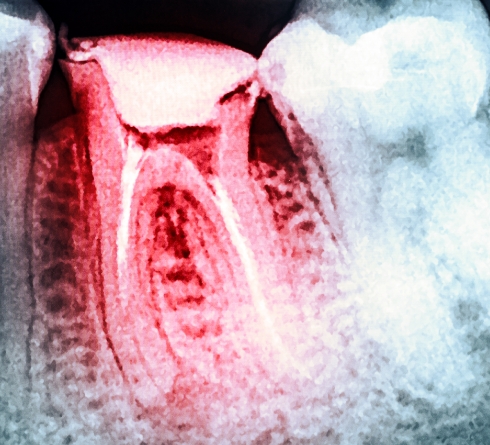Tooth Extractions Staten Island
Comfortable & Conservative Tooth Removal
The damage to a tooth can be so significant that removing it is necessary to preserve someone’s oral and general health. When tooth extractions on Staten Island are required, many dentists and doctors turn to us because our team makes sure a patient understands why this is being recommended and that they remain comfortable throughout the procedure. Keep reading to learn more about this emergency dental treatment or give us a call to schedule a same-day appointment.
Why Choose Staten Island Oral Surgery Center for Tooth Extractions?
- G has Successfully Extracted Over 4,000 Teeth
- 15+ Years of Oral Surgery Experience
- Multiple Dental Sedation Options
When Are Tooth Extractions Necessary?

At Staten Island Oral Surgery Center, tooth extractions are only recommended if the tooth in question cannot be salvaged through other methods. Although preserving as much of the natural tooth structure is ideal, it may be the best option if there is:
- Extensive decay or irreparable damage to a tooth
- Severe infection that could spread
- Advanced periodontal disease or jawbone loss
- Primary (baby) tooth that won’t fall out
- An impacted (trapped) tooth
The Process of Removing a Tooth

A simple extraction is done for a tooth that has fully erupted and is completely above the gumline. After Dr. G numbs the mouth, he’ll grasp the tooth with dental forceps and rock it back and forth until it separates from the gum tissue.
Meanwhile, a surgical extraction is necessary for a tooth that isn’t fully above the gumline. This method involves making a small incision in the gums to access the tooth. Like a simple extraction, dental forceps will be used to hold the tooth and remove it.
Tooth Extraction Aftercare

Following your tooth extraction, you’ll receive post-op instructions from your oral surgery dentist on Staten Island that you’ll need to follow diligently to make a swift and comfortable recovery. By keeping your mouth as clean as possible, you can ensure the surgical site heals properly. Here are some aftercare tips to keep in mind:
- Take prescribed or over-the-counter pain medication as needed to alleviate your discomfort.
- Gently brush and floss around the surgical site to keep it clean.
- Rinse with warm salt water after 24 hours to disinfect the site.
- Stay hydrated and get plenty of rest to promote faster healing.
- Use a cold compress on the outside of your mouth to minimize pain and swelling.
- Avoid drinking from a straw.
- Do not eat hard, crunchy, sticky, sour, or spicy foods for the first few days.
Understanding the Cost of Tooth Extractions

There’s no set fee for this type of treatment because it can vary based on a patient’s specific circumstances. We will provide an estimate during a consultation after examining them, and we’ll also take the time to explain our financial options.
Factors That Can Affect Tooth Extraction Cost

Every patient has different needs when it comes to tooth extractions, so the details of the procedure can vary. Multiple factors come into play when determining tooth extraction cost, such as:
- Whether the tooth needs a simple or surgical extraction.
- The number of teeth being removed.
- The location of the tooth or teeth within the mouth.
- Which option you choose to replace the tooth afterward (dental implant, bridge, denture, etc.).
Does Dental Insurance Cover Tooth Extractions?

After your deductible has been met, it’s common for dental insurance carriers to cover about 50% of the cost of tooth extractions (including wisdom tooth extractions) up until you’ve exceeded your annual maximum. However, coverage can vary for each individual policy, so check with your provider just to be sure. Our team at the Staten Island Oral Surgery Center is more than happy to look over your specific plan, file your claims on your behalf, and make sure you’re getting all of the benefits you deserve.
How to Make Tooth Extractions Affordable

On top of accepting dental insurance, our practice can also accept medical insurance to help patients easily afford their care. We’ll go over all of your benefits ahead of treatment to minimize your out-of-pocket cost as much as possible.
Whether you have insurance or not, we can also help you break up your treatment costs into monthly payments with a CareCredit plan. With this third-party company, qualified patients can enjoy low- to no-interest financing that makes it easy to fit their dental costs into their budget.
Tooth Extraction FAQs
Does Getting a Tooth Extracted Hurt?
Many people assume that the process of having a tooth extracted is especially painful, but this is not true. No matter how many teeth are being removed, your mouth will be numbed first to make the process as comfortable as possible. It’s normal to notice a little soreness after the procedure, but you can manage it by taking over-the-counter painkillers and following any aftercare instructions you’ve received.
Any pain you experience after tooth extraction should fade quickly over time; if it seems to grow worse or is accompanied by warning signs of an infection (fever, swelling, redness), give our office a call right away.
Can I Leave the Space Empty After a Tooth Extraction?
While you do have the option of simply leaving the space left by an extracted tooth alone, we do not recommend doing so. Your mouth functions best with a complete set of teeth; even a single missing tooth can interfere with your ability to chew your food or speak clearly. As such, no matter how many teeth are being removed, you should have them replaced as soon as possible.
How Should I Prepare for My Tooth Extraction?
We will give you specific instructions to get ready for your extraction, such as fasting for a certain amount of time before the procedure or picking up a prescription medication beforehand. Follow any instructions you’re given carefully so that you can avoid any unnecessary complications during the process.
Also, since you will likely be sedated for the procedure, you should make arrangements to have a trusted friend or family member drive you home afterward, as the medication likely won’t fully wear off for a while.
What Risks Are Involved with Tooth Extraction?
Tooth extraction is considered a very safe routine dental procedure. However, no treatment is completely without risk. There is a chance of the extraction site being infected before it can fully heal, which is why it’s very important to keep your mouth clean during your recovery. Another possible complication is dry socket, which is when the blood clot protecting the extraction site becomes dislodged. This is very painful and can greatly slow down the healing process.
To keep these risks to a minimum, we’ll give you a list of aftercare instructions to follow. We’ll also make sure that you’re aware of the warning signs of infection so that you can call our office before an issue becomes too advanced.
